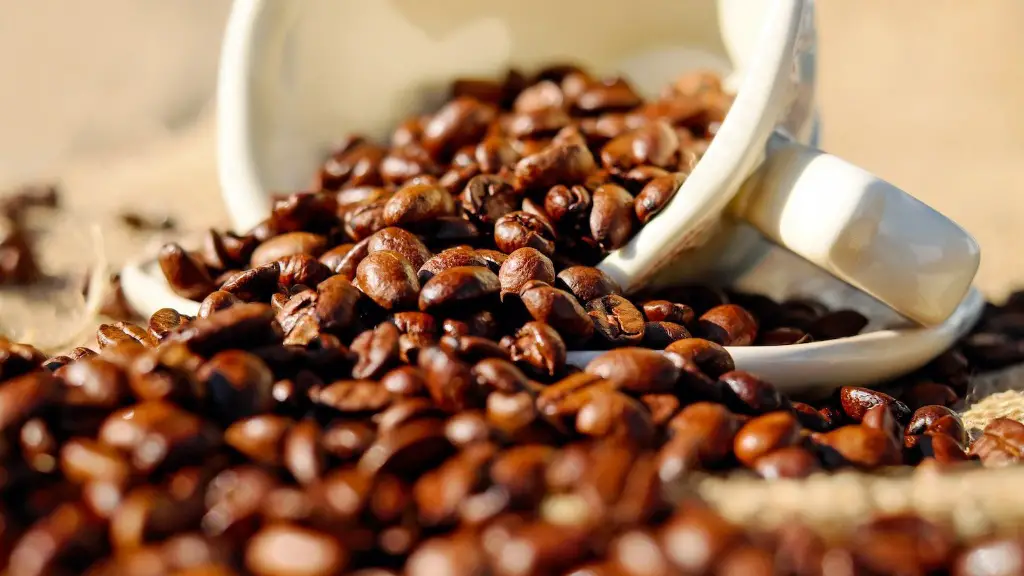We all love our daily dose of coffee and can’t seem to live without it. But, have you ever wondered: how much coffee should you drink a day? Is it safe to have more than one cup of coffee a day? Can it have any adverse effects on your health? Does it have any benefits for your body? Let’s take a deeper dive into this issue!
Consuming too much coffee leads to an increase in cortisol, a stress hormone, which affects the body’s metabolism.
However, a moderate amount of coffee – around 2 to 3 eight-ounce servings – has been linked to a reduction in risk of certain diseases and has been shown to potentially increase fat burning and physical performance. So if you’re looking to reap the benefits of drinking coffee without overdoing it, you should aim for no more than 3 cups a day.
Although individual responses to caffeine vary greatly, the American College of Gastroenterology recommends a maximum of 400 milligrams of caffeine each day — equivalent to about 4-5 cups of coffee.
Caffeine is also an appetite suppressant and can increase energy levels, so it’s a great pick-me-up for those with low energy levels. It can also be an effective tool for weight management when consumed in moderation.
When it comes to health risks of coffee, everything from elevated heart rate to increased risk of cancer has been linked to over-consumption of caffeine. And while a cup of joe can give you a boost of energy, it’s worth noting that too much caffeine can lead to restlessness, anxiety, headaches, and can even interfere with your sleep.
Overall, a moderate consumption of coffee is generally safe. Health professionals suggest women limit their intake to 200mg per day, which is about 2 8-ounce cups of coffee, and men should keep it to under 400mg, which is about 4 8-ounce cups. It’s important to note that different people are affected by coffee differently depending on their tolerance levels, so everyone should adjust their consumption according to how they feel.
Health Benefits of Coffee
Numerous studies have highlighted the potential benefits of coffee, such as its antioxidant content, which may help protect against disease. Coffee is also linked to a significant decrease in type 2 diabetes risk, as well as improving memory, concentration and mood. In addition, caffeine has been found to play a role in fat loss, meaning that coffee may be a helpful tool in weight management.
Other potential beneficial effects of coffee consumption include a reduced risk of stroke and Parkinson’s disease. It has also been found to improve liver health, and some research indicates that it may even reduce the risk of certain types of cancer. Given the moderate amount of coffee to be consumed in order to reap these benefits, it’s clear that coffee can fit into a healthy lifestyle.
The Effect of Coffee on Sleep and Anxiety
Although coffee has been found to have beneficial effects on health, it’s important to note that too much caffeine can have a negative impact. Caffeine is a stimulant and it can interfere with an individual’s sleep patterns when consumed too close to bedtime. It can also make symptoms of anxiety worse, and if you suffer from panic attacks, it is best to avoid coffee entirely.
Caffeine also has a diuretic effect, meaning that it can lead to dehydration if too much is consumed. This is especially true of individuals who don’t drink enough water throughout the day. And, if you happen to be sensitive to caffeine, it’s best to avoid it altogether or keep your consumption to a minimum.
The Best Way to Reap the Benefits of Coffee
When drinking coffee for its potential health benefits, it’s important to focus on the quality of the coffee, as well as the quantity consumed each day. Quality is key because the ground beans, brewing methods and type of coffee can all contribute to the flavor and health effects. High-quality coffees are typically produced from specialty-grade beans and are typically more nutrient-rich than other types of coffee.
Also, since dark roasts have a higher acidity than light roasts, the best choice for health benefits is to go for a light to medium-bodied roast. For those who want to reduce their risk of cancer, a lighter roast is best because of its higher levels of antioxidants.
Drinking Coffee Responsibly
Although 2 to 3 8-ounce servings of coffee per day can be beneficial, it’s important to remember that moderation is key. If you’re feeling jittery or anxious, or if you’re having trouble sleeping after drinking coffee, it’s a good idea to cut back. It’s also a good idea to talk to your doctor if you have any concerns about your caffeine intake.
In the end, it’s all about finding the balance that works for you. Start by making sure you’re drinking high-quality coffee and avoiding over-consumption. Also, pay attention to how caffeine affects you and don’t be afraid to adjust your coffee consumption habits if needed.
Adding Milk, Syrups and Sugars to Coffee
Adding milk, syrups and sugars to coffee can boost flavor and make it more enjoyable, but they can also add calories and saturated fat. If consumed in moderation, these add-ons can be beneficial, but it’s important to pay attention to the quantity you’re using and to opt for healthier alternatives whenever possible.
When adding milk or cream, opt for non-dairy milk such as almond milk or oat milk, or unflavored milk such as skim milk. Also, look out for added sugars in pre-flavored coffee drinks, as these can increase calorie intake significantly. Opting for natural sweeteners such as honey or maple syrup can improve flavor without driving up the calorie count.
Final Word
The bottom line is that drinking coffee in moderation can have some health benefits, including improved energy levels, weight management, and better concentration. However, it’s important to be aware of the potential side effects of over-consumption, such as restlessness and anxiety, and to take care when adding additional ingredients to your coffee. Enjoy your coffee – just don’t overdo it!



